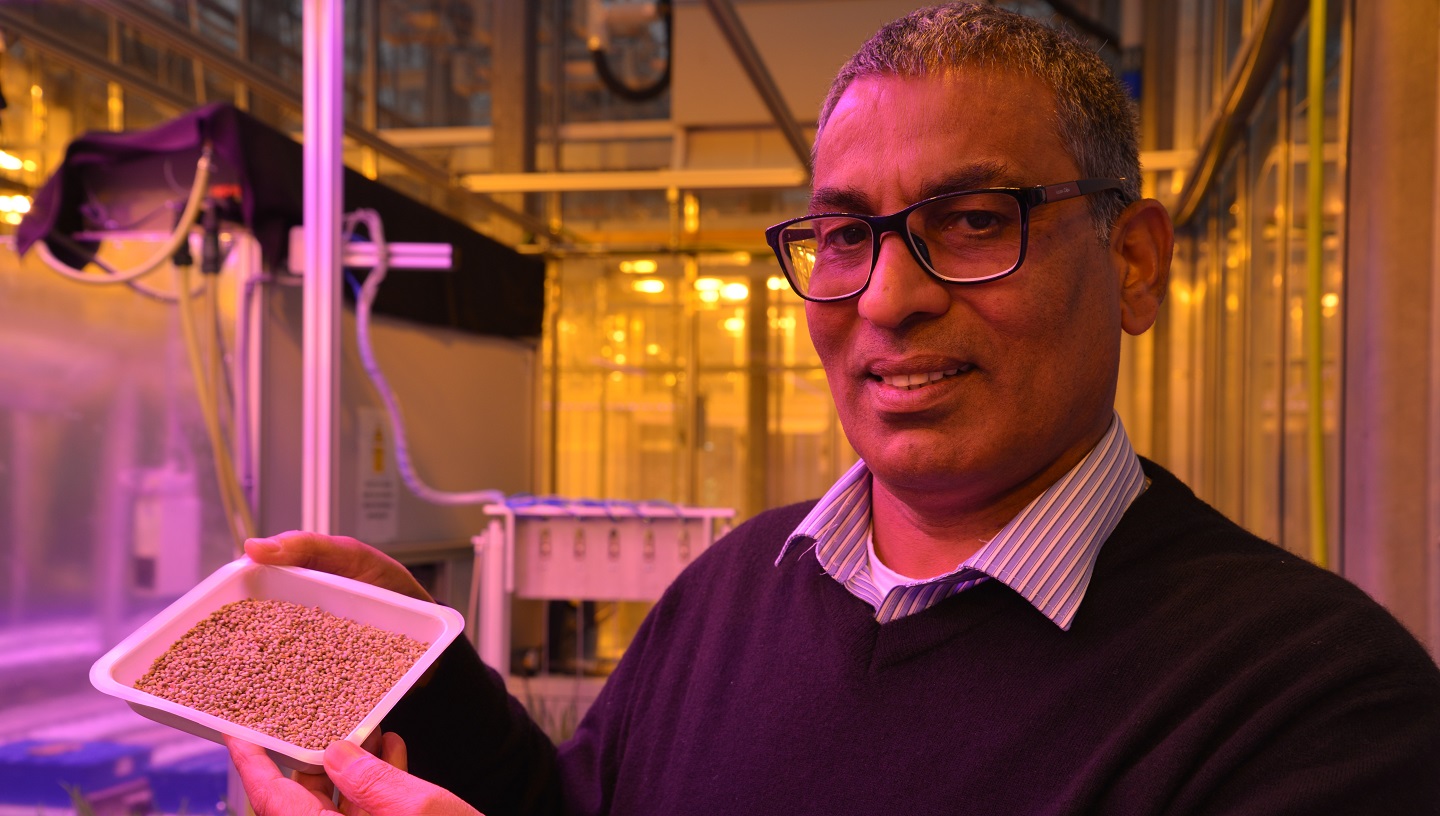Aberystwyth University scientists awarded funding to tackle diabetes in Africa

Dr Rattan Yadav from the Institute of Biological, Environment and Rural Sciences at Aberystwyth University who is leading the work on Pearl Millet.
11 December 2019
Scientists at Aberystwyth University have been awarded funding to develop crops which can help stem Africa’s growing diabetes problem.
The number of type 2 diabetes sufferers in Africa is estimated by the World Health Organisation to be over 25 million today, and projected to reach 41 million by 2045.
Now the UK’s innovation agency, Innovate UK, has co-funded a £500k project led by scientists at the Institute of Biological, Environmental and Rural Sciences (IBERS) at Aberystwyth to develop crops – specifically varieties and hybrids of pearl millet – which can thrive in Sub-Saharan Africa, providing a diabetes friendly food source for local populations.
The project will seek to maximise resilience of pearl millet crops with a low glycaemic index for farming in the region.
Traditionally used for making porridge, kedgeree and flat breads like chapattis, it is increasingly used for making bread, biscuits and breakfast cereals.
To deliver the project, the team at Aberystwyth University will work in collaboration with the International Crops Research Institute for Semi Arid Tropics (ICRISAT) and AINOMA Seed Farm in Niger, West Africa.
Pearl millet has been found to help prevent consumers from developing type 2 diabetes, as well as helping sufferers to control their condition.
It has high fibre content as it digested slowly, helping to maintain blood sugar levels over a relatively long period of time.
The Aberystwyth University team, led by Dr Rattan Yadav, has already established a strong reputation in this field, having just completed a similar project in India. The work there has identified a pearl millet strain which can thrive in local conditions.
Currently pearl millet is grown in India on 27 million hectares annually and the country has over 65 million type-2 diabetes sufferers.
Dr Yadav said: “Type 2 diabetes is a massive, and growing problem across Sub-Saharan Africa. So our objective now is to develop varieties and hybrids of pearl millet which will thrive in local conditions and help reduce the growth and effects of this disease.
“We know from literature that having an adult type-2 diabetes sufferer in Africa can add around 25% to a family’s living costs. We hope that our work over the coming years will offer hope that sufferers can live sustainably in future.
“Following our work in India, we’re so pleased to have an opportunity to continue our work which is already creating benefits in worldwide efforts to halt the debilitating effects of type-2 diabetes.
“We are grateful for the support of Innovate UK, and we look forward to collaborating with them, along with our project partners in our efforts against the growing problems caused by this condition.”
Dr Prakash Gangashetty, a Millet breeder with ISCRISAT, added: “We have been working on the ground in many countries in sub sub-saharan Africa for nearly 50 years including running pearl millet breeding programs. Inclusion of nutritional and health benefits in breeding programs are an important necessary move.”
Aichatou Salifou, CEO and Director General of AINOMA said: “A major problem facing African farmers is access to the right kind of seeds. This project will make available pearl millet seed built with starch characteristics and also help build capacities in seed production in the African region. This will help subsistence farmers produce pearl millet grains for consumers that will reduce the impact of type 2 diabetes in an affordable manner.”
Support for the project is being provided by Department for International Development (DFID) and Global Challenges Research Fund (GCRF) through Innovate UK.



